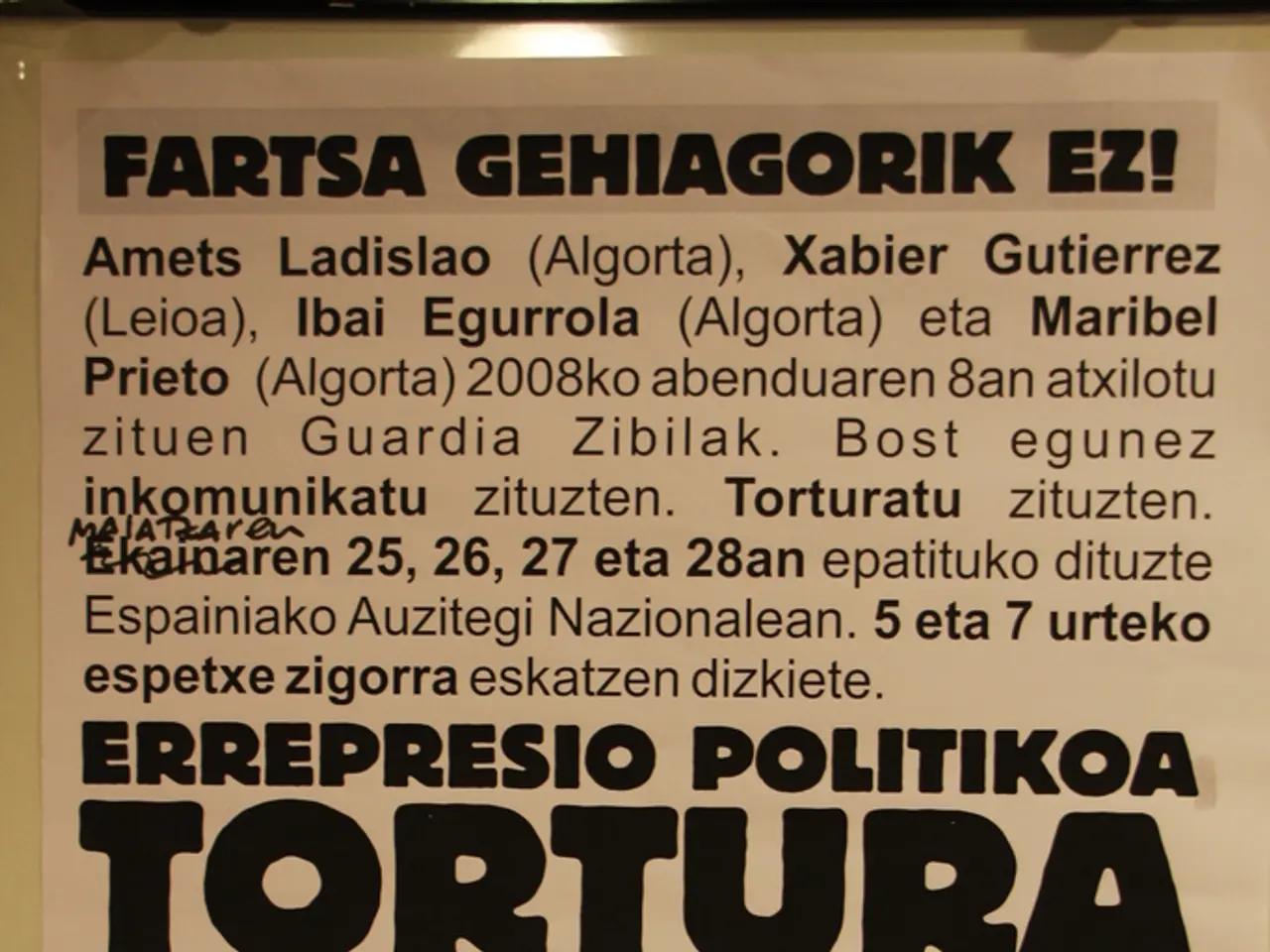Children's custody battle in Peru between Portuguese parents has left them uncertain for two consecutive months
In a heart-wrenching tale of parental separation and international custody, Ana, a mother of two boys aged two and four, finds herself embroiled in a complex legal battle to regain custody of her sons, Rafael and Filipe.
Ana, who holds a master's degree in Public Policies from Harvard University, is the sub-director of one of Europe's largest employment platforms. The boys were taken from their home in Madrid to Lima, Peru, without her knowledge, initiating a legal saga that has lasted over a month.
The case, which involves intricate issues of parental alienation, international custody, and jurisdiction challenges, has seen two previous dates for the enforcement of the handover decision pass without success. The father, despite a Peruvian court order, has refused to comply with the handover of the children.
The father's refusal is based on accusations of Ana's deep depression and bipolar disorder. However, psychological and psychiatric assessments during the process found no indications of any disorder that compromises Ana's judgment or parental capacity.
Parental alienation, a term used to describe behaviors by one parent that manipulate or harm the children’s relationship with the other parent, is a significant concern in this case. Ana believes the children's behavior changes depending on who asks them questions, suggesting potential signs of parental alienation and psychological violence.
Peru, where the children currently reside, is not a party to the Hague Convention on the Civil Aspects of International Child Abduction. This complicates repatriation and custody enforcement efforts, making the legal fight for custody a challenging endeavor.
To navigate this complex legal landscape, Ana must navigate Peru’s family law system, the family court jurisdiction where the original custody orders exist, and possibly involve local and international legal mechanisms to enforce or modify custody. The success of her fight for custody depends greatly on evidence presented regarding the children’s best interests, any parental alienation effects, and compliance with legal procedures.
Ana has vowed not to give up, despite not knowing the whereabouts of her children and being on unpaid leave. On June 9, she received a favorable decision from Peruvian Justice, ordering the immediate handover of her sons. A new attempt for the enforcement of this decision is scheduled for next Thursday.
This situation underscores the complexities and challenges faced in international custody disputes, emphasizing the need for careful navigation of legal systems and the importance of evidence-based arguments in such cases. Consulting family law experts familiar with Peruvian law and international custody cases is crucial for those finding themselves in similar circumstances.
Ana's legal battle for family-health and parenting rights intensifies as she navigates the intricacies of science, health-and-wellness, and international family law. Given the allegations of parental alienation and the absence of evidence supporting the father's claims, Ana seeks aid from experts in health-and-wellness to highlight the importance of maintaining a balanced upbringing for her sons, Rafael and Filipe.




